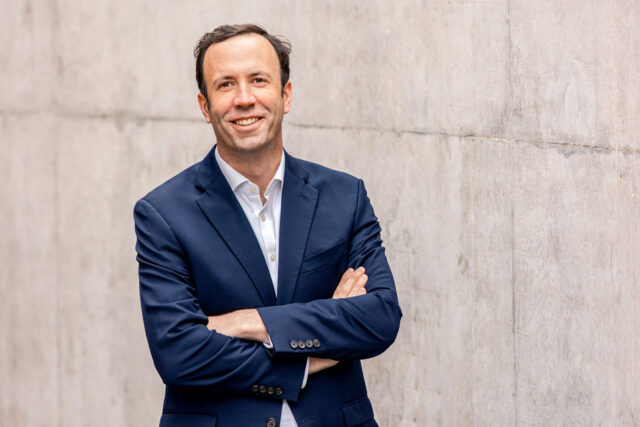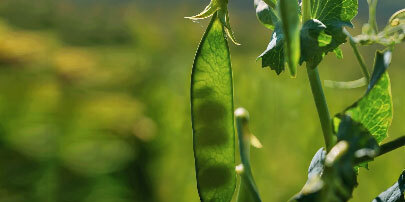
Interview with Member of the Executive Board Nicolás Wielandt
Four segments. One goal:
High-yielding seeds
A robust overall result despite lower acreage, record sales for sugarbeet, and a strategic repositioning in corn: In this interview, Nicolás Wielandt, Member of the Executive Board, looks back on fiscal year 24/25.
Mr. Wielandt, how did our main crops perform in the past fiscal year?
Sugarbeet clearly stands out with record sales of 872 million euros. Innovations such as CONVISO® Smart and CR+ and their combination once again made us the preferred choice for farmers worldwide.
We gained important market share in the cereals segment, particularly in oilseed rape. Our portfolio is in a leading position in key markets such as France and Germany, and our hybrid rye varieties also continue to make a significant contribution to the segment’s performance.
Our European corn portfolio is stronger than ever – in both silage and grain corn. Although commodity prices, drought in Southeast Europe, and the war in Ukraine reduced the market volume, we are convinced that we will benefit from a strong product pipeline in the coming years.
Nicolás Wielandt | Member of the Executive Board
In our young Vegetables Business Unit, we further consolidated our leading position in beans and considerably expanded it in spinach. Pop Vriend’s business was fully integrated into the KWS brand. At the same time, we are vigorously pressing ahead with breeding our own innovative varieties of tomato, watermelon, melon, cucumber and pepper.
Which strategic milestones were particularly significant?
Two developments stand out for me: Firstly, we have implemented even greater customer focus in all European markets – a far-reaching change process. This enables us to support farmers throughout the entire crop rotation with one central contact person.
Secondly, we have withdrawn from the genetically modified corn markets. At the start of the fiscal year, we completed the divestment of our corn activities in Brazil and Argentina. The sale of our stake in AgReliant in the US was completed at the beginning of fiscal year 25/26.
Are there any external factors that had a significant influence on the fiscal year?
Sugar prices fell significantly in 2025, which had an impact on global acreage under cultivation. We expect a slight recovery for the 2026 sowing season. Areas for corn in important markets such as Germany and Romania have also shrunk.
On the positive side is the current discussion at EU level on how to deal with new breeding techniques (NGTs). Important progress has been made here in recent months, and we are actively preparing to use the new technologies in all the main crops.
Here, as elsewhere, we benefit from forward-looking and innovation-driven research and development, to which we continue to dedicate a significant share of our revenue. In the last fiscal year, this amounted to 349 million euros.
You mentioned the sale of AgReliant, which follows the divestments of South American and Chinese corn business. How should this step be viewed strategically?
Withdrawing from the genetically modified corn markets is a logical step in the context of our strategic focus on long-term, profitable growth and independent decision-making.
European corn business remains unaffected and continues to be a key growth driver, as does our North American portfolio for sugarbeet, cereals and vegetables, which we will expand.
Other strategic focus areas include building a strong position in the vegetable seed market, hybridizing key crops such as wheat, barley and potatoes, and strengthening our leading role in Europe in sugarbeet, corn and cereals.
How will KWS position itself in the corn segment in the future?
We are very well positioned: We are maintaining our leading position in silage corn in Europe. KWS grain corn varieties are top performers and highly competitive. In the future, the focus will be on exploiting the great potential of our product pipeline in Europe, supported by the new, customer-centric organizational structure. At the same time, we want to strategically market breeding successes outside Europe through partnerships and license agreements.
The figures for our segments can be found in the next article.


















